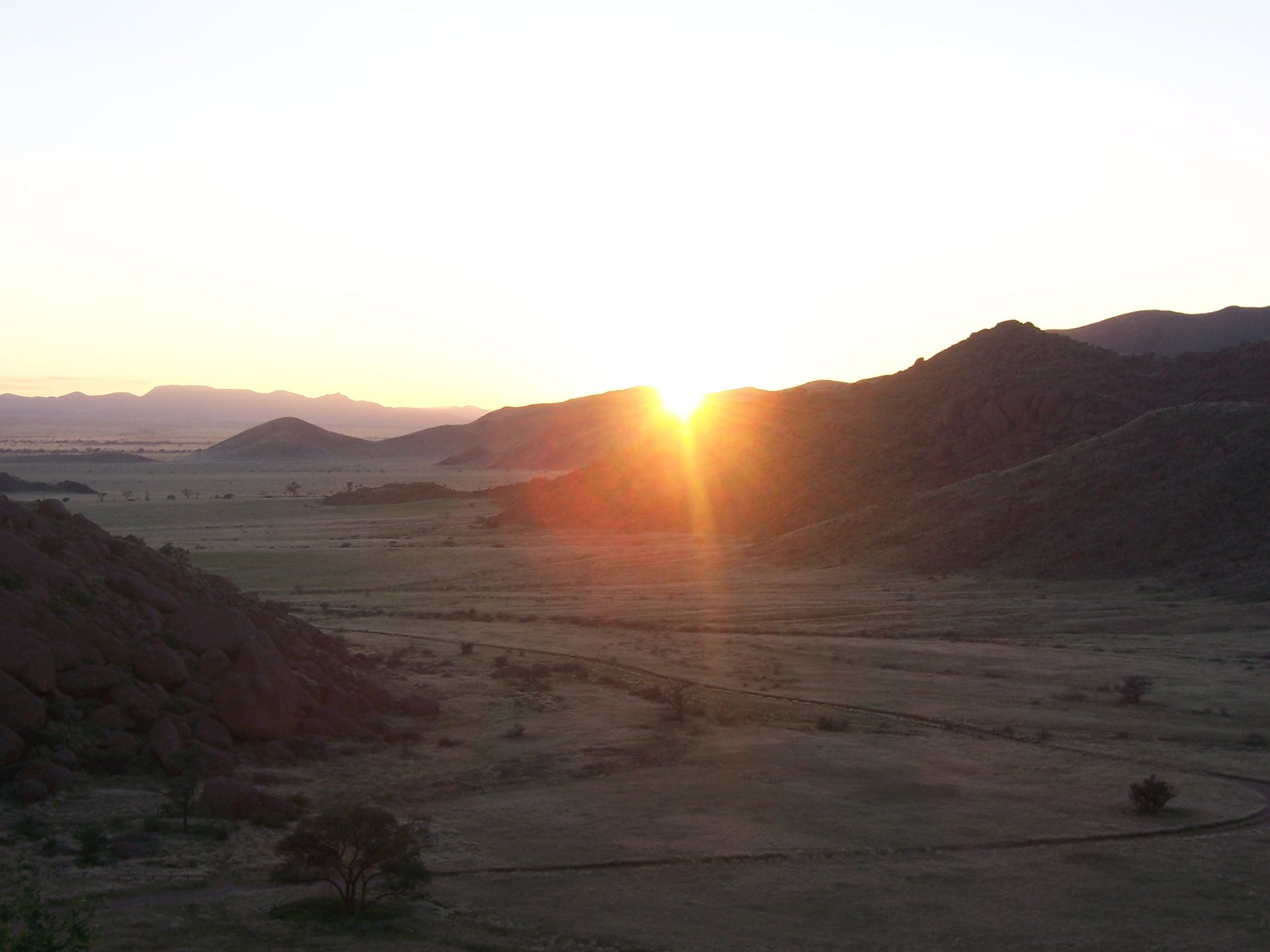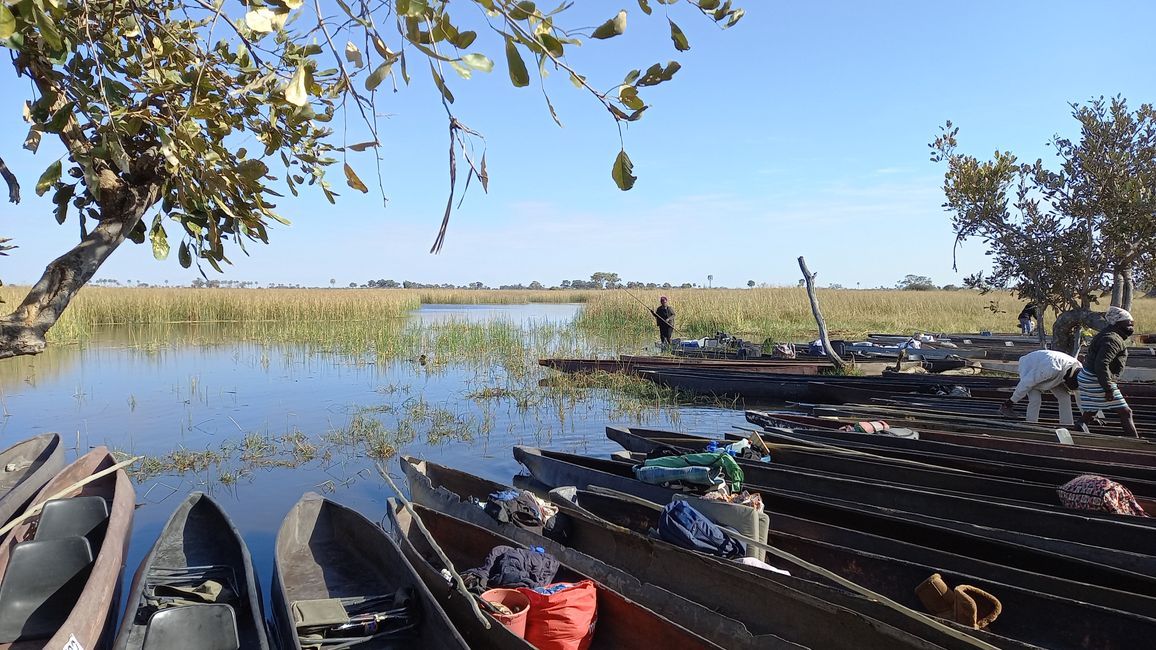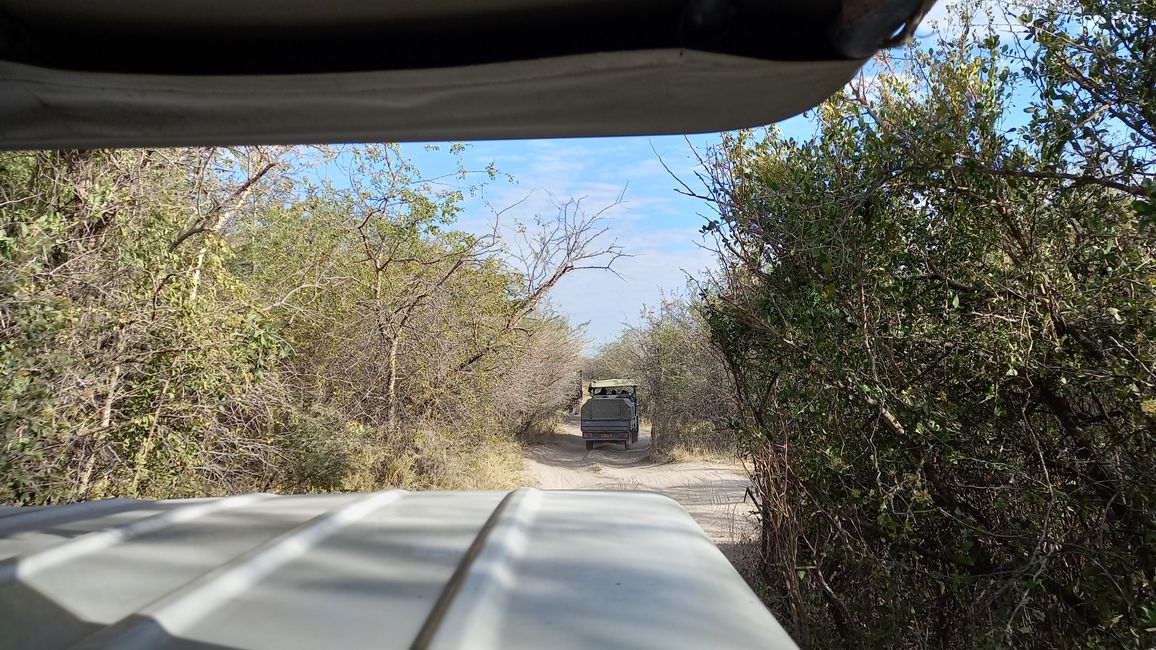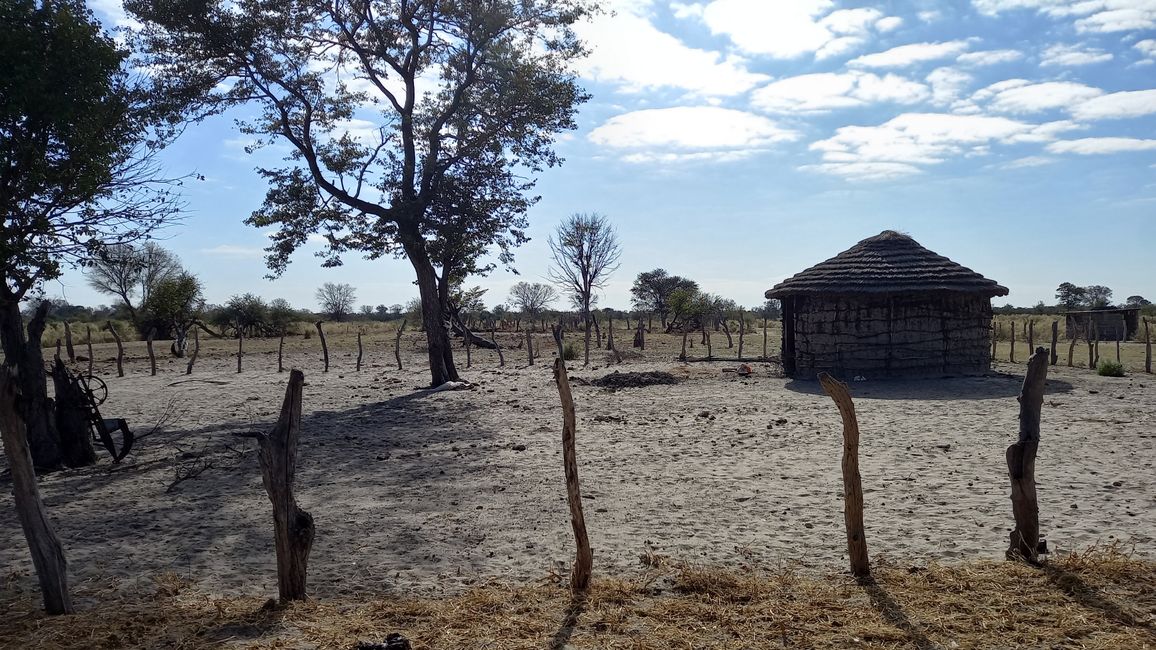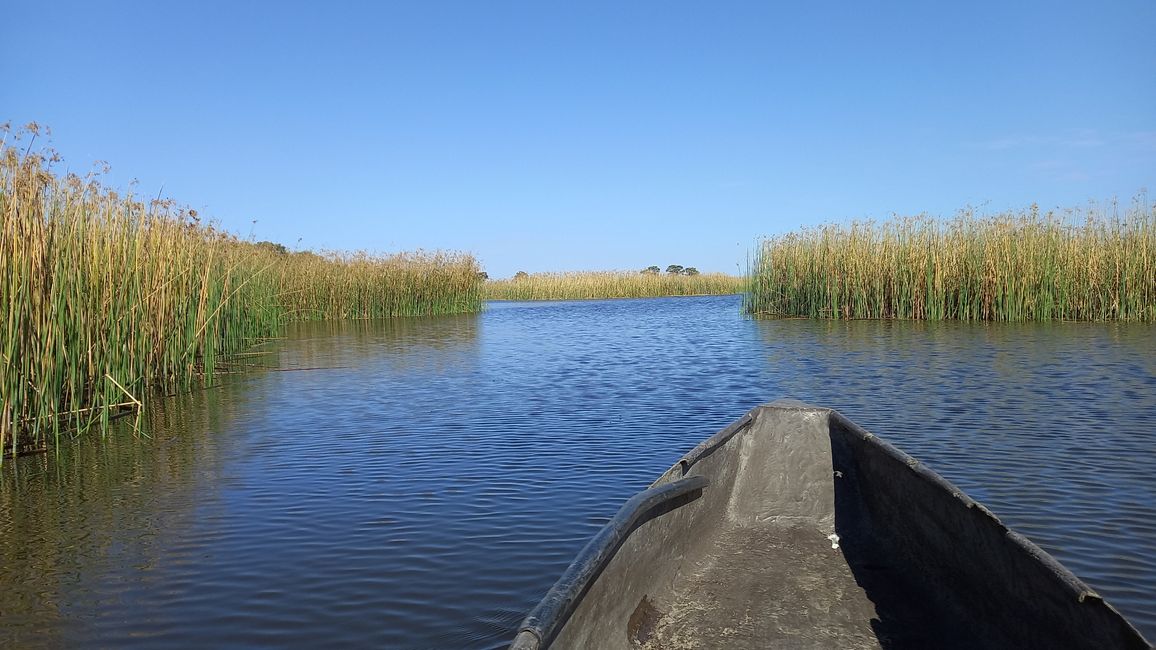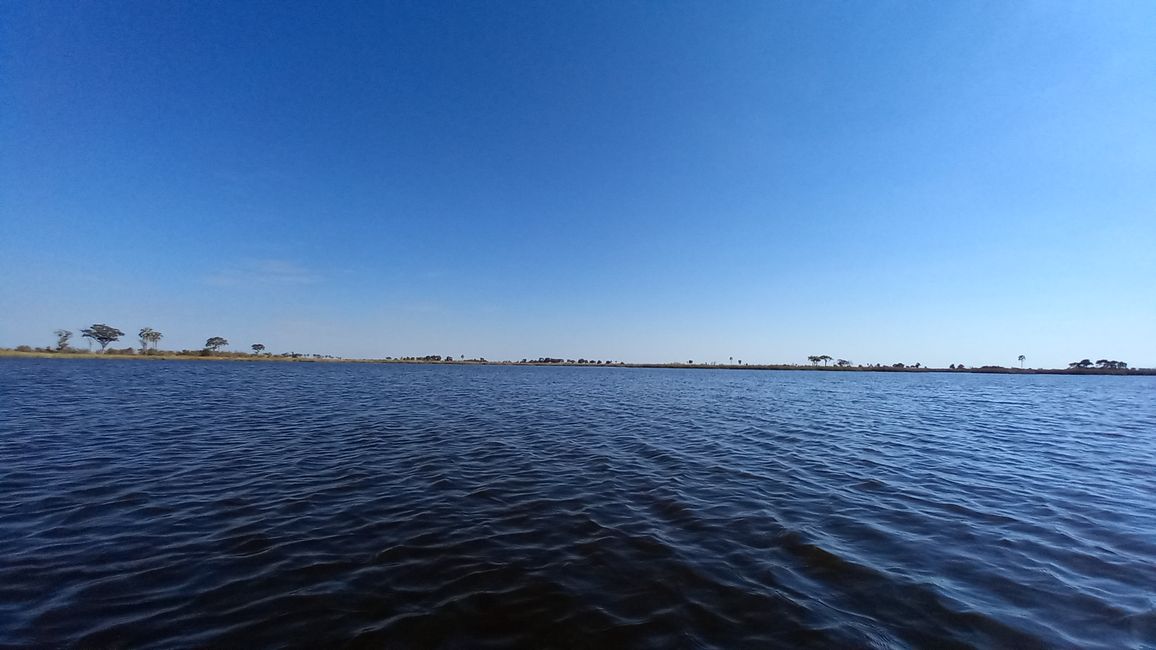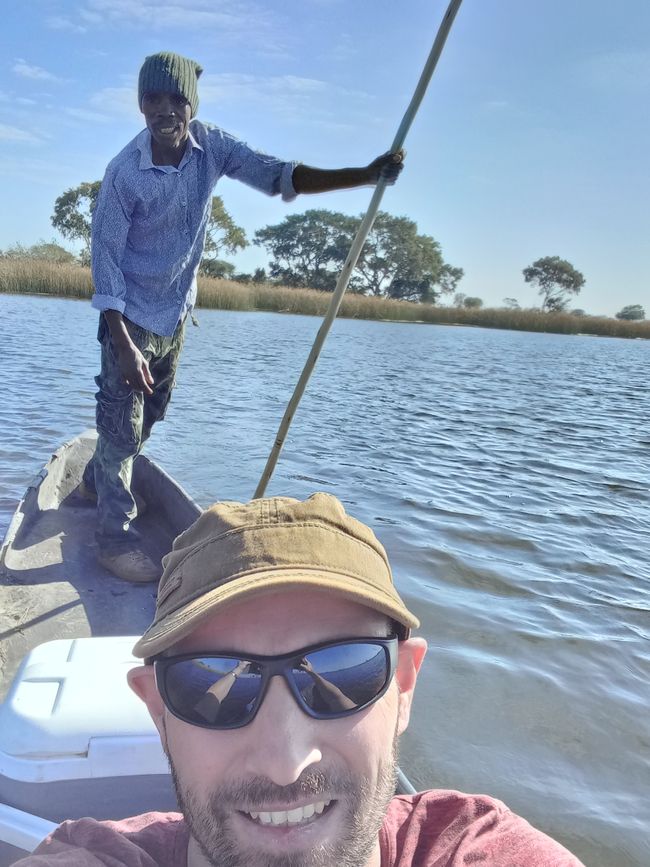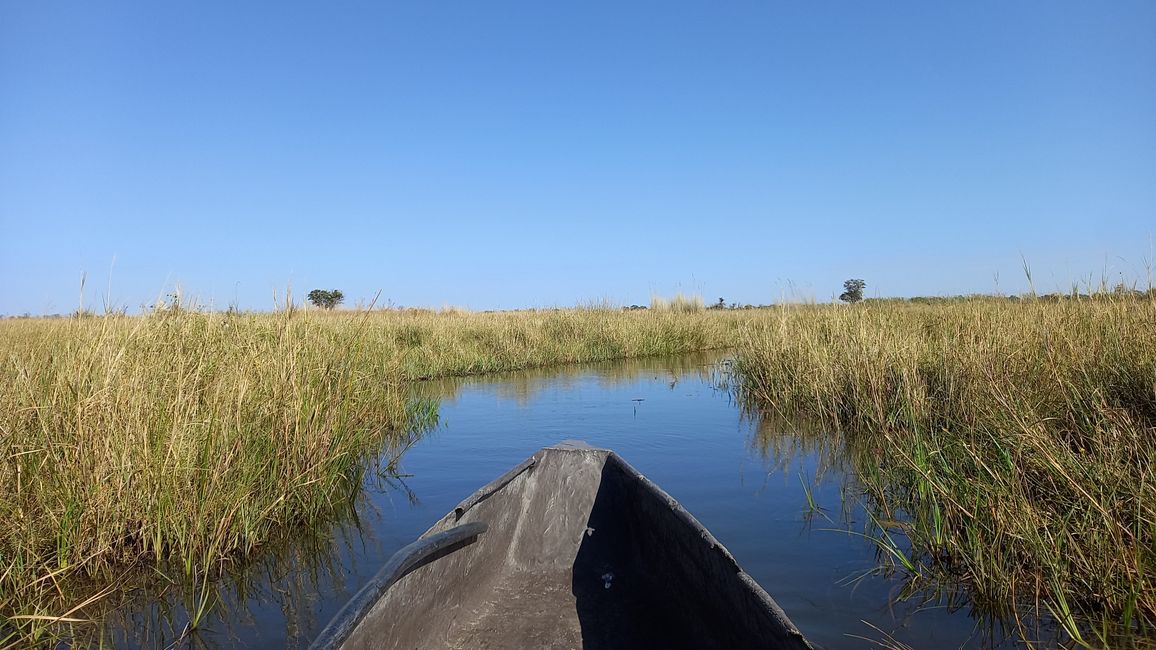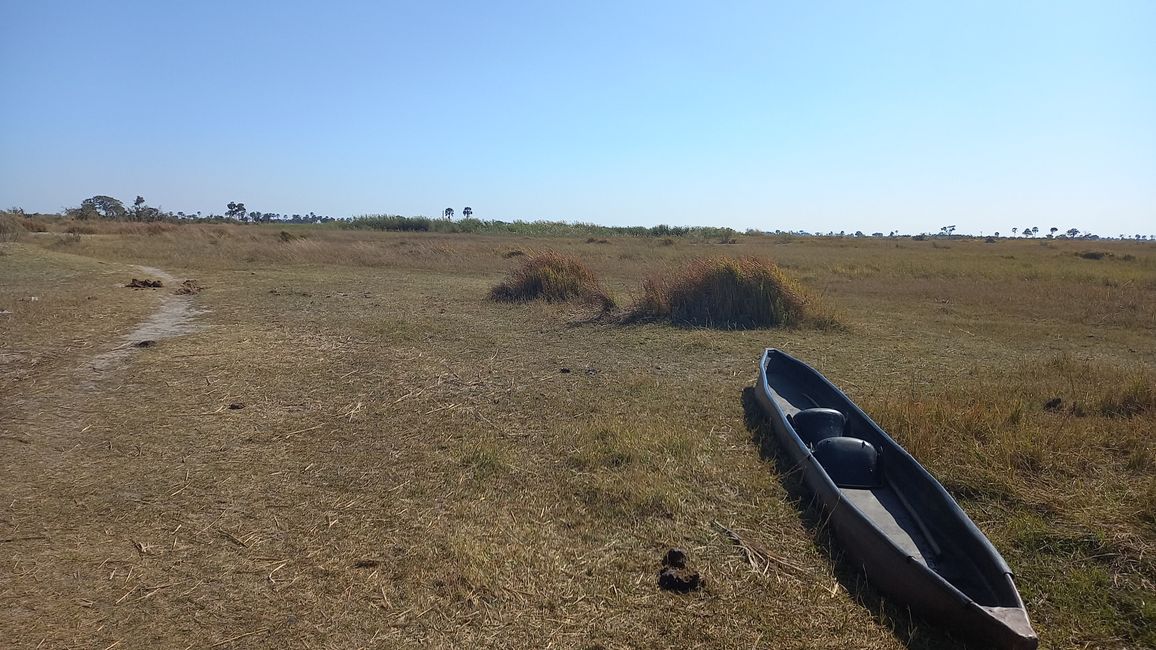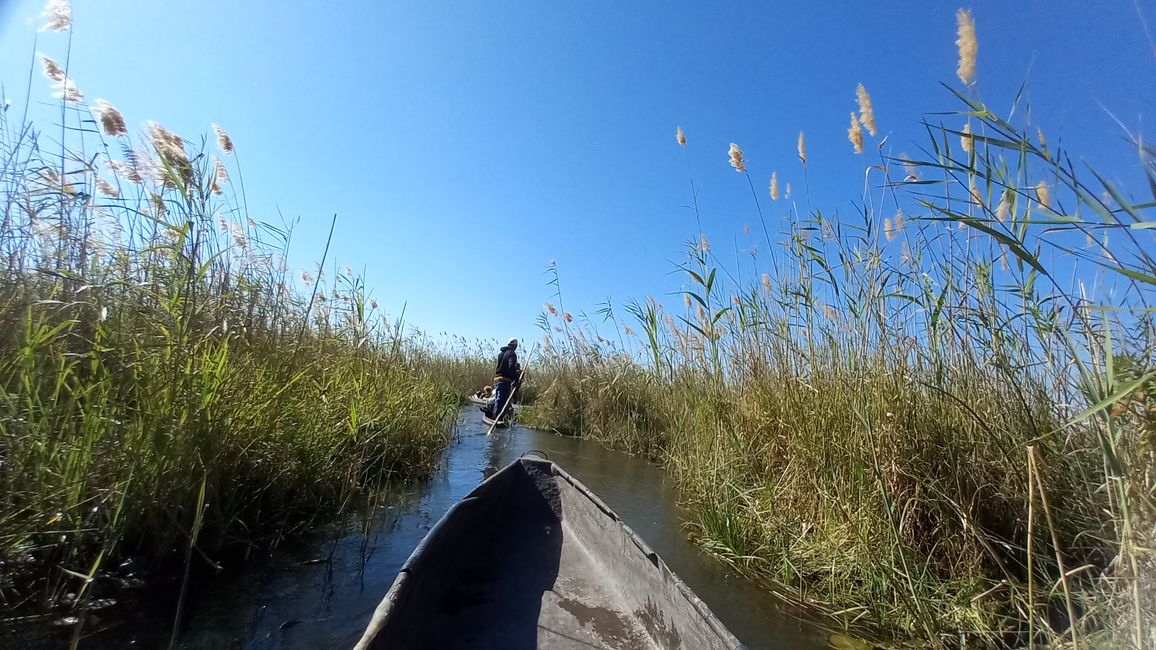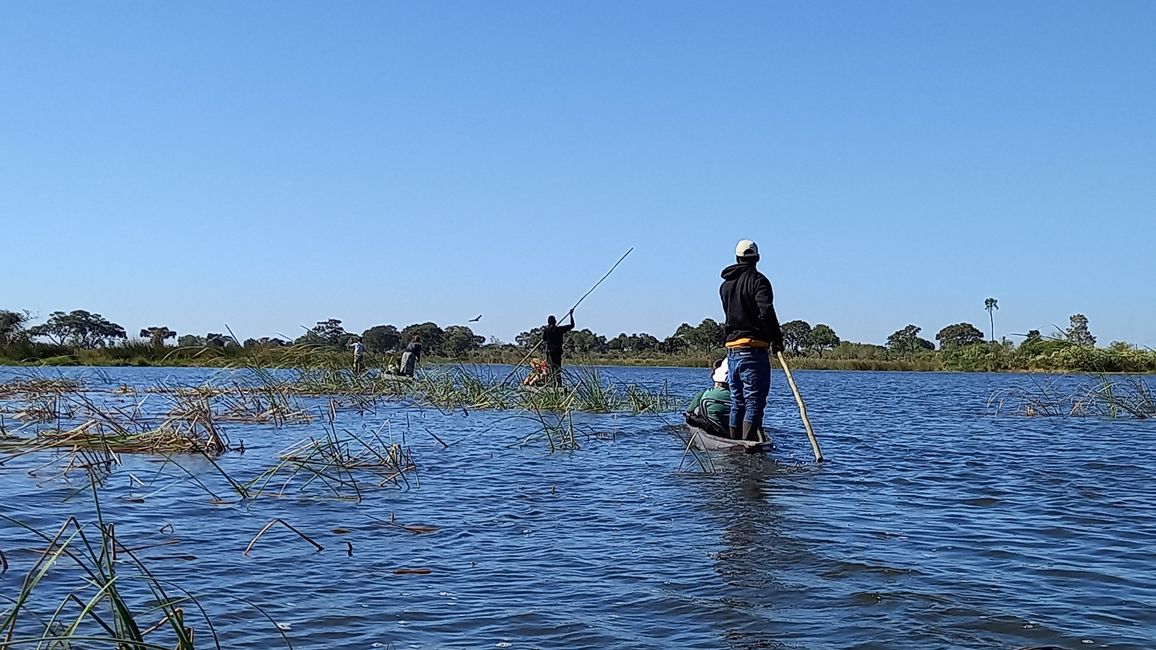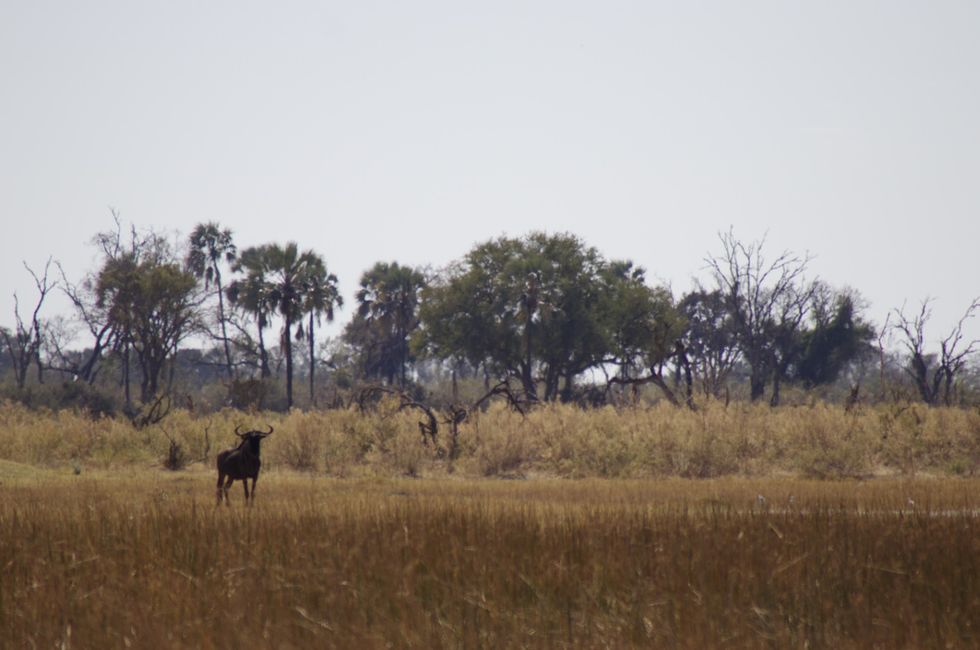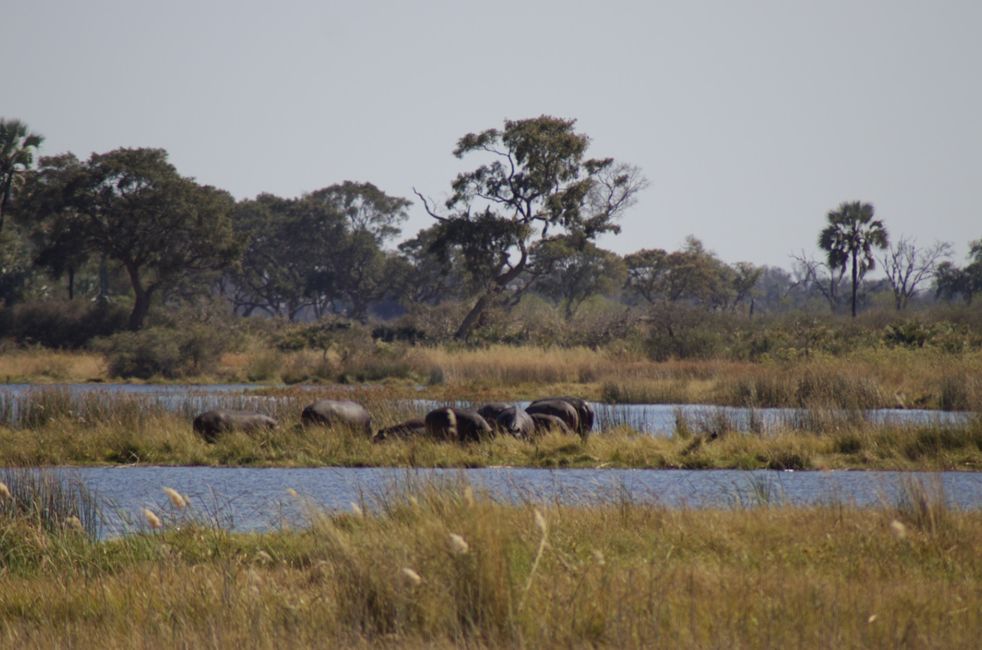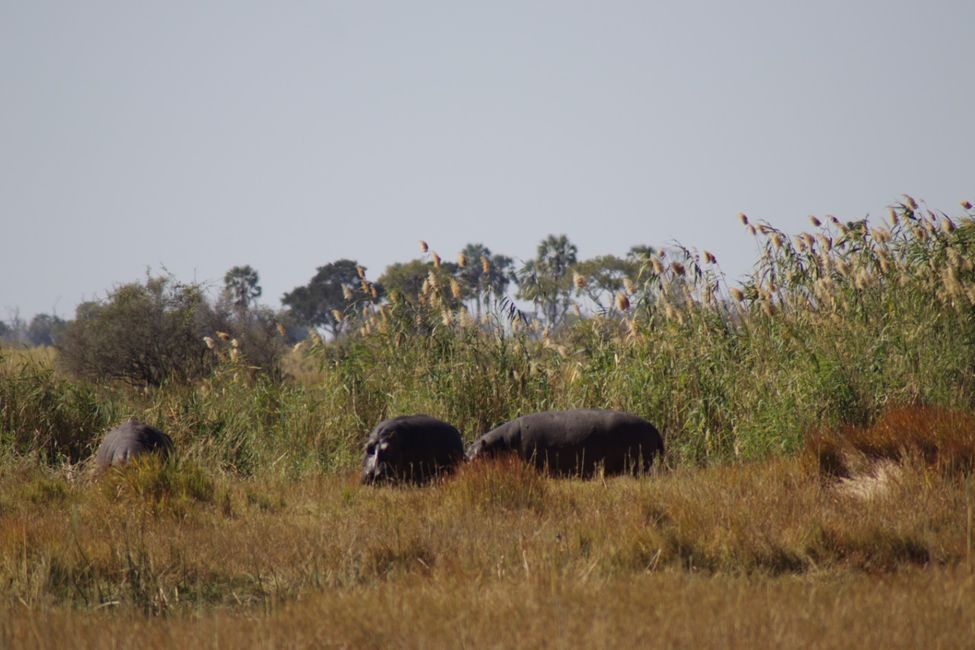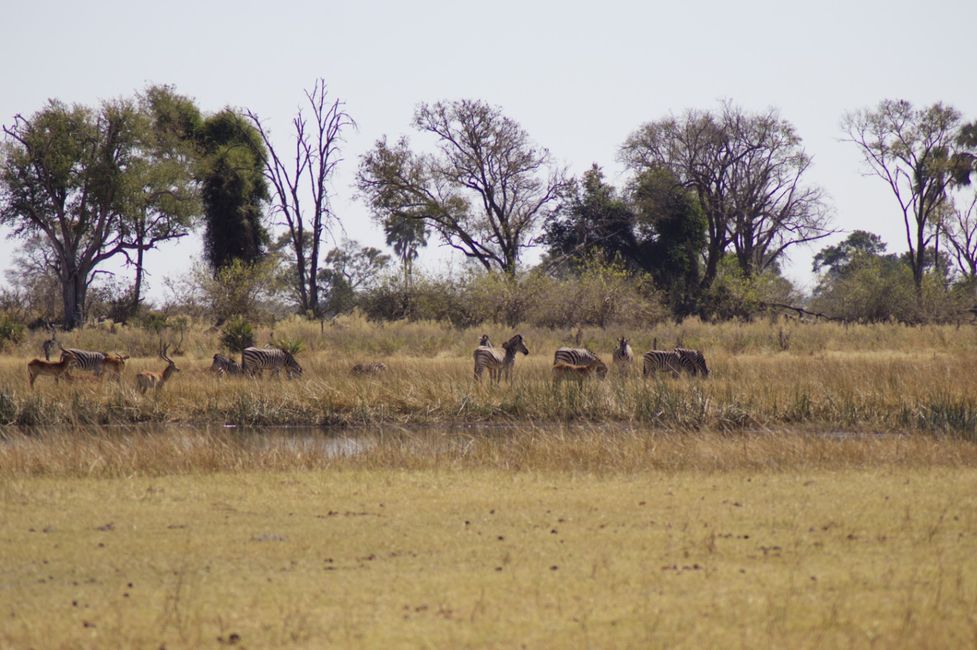Okavango Delta
Imechapishwa: 05.08.2023
Jiandikishe kwa Jarida
The journey from Kasane to Maun (pronounced Ma-Un) takes a little over 6 hours and mainly goes on paved roads. In Namibia, the paved roads are also in relatively good condition! Not necessarily the case in Botswana! 🙈😅 You drive for a while on really good paved roads, then suddenly there are signs that say 'Caution! Sever Potholes next 5 km!' and you keep driving, thinking that the small potholes, which are already somewhat repaired, are not a big deal! 😄 Then there are no signs for a while, and suddenly it starts! The paved road is almost nonexistent, except for a few square centimeters here and there, the rest is a sea of potholes! So extreme that you have to slow down to 30, maybe even 20 km/h, to avoid damaging the axles! This goes on for a distance of 1-2 km, then everything is fine again for 10 km! And then the same thing happens again! This happens about 2-3 times, and then the road is in a good drivable condition until the end!
Once I arrived in Maun, I checked in at my relatively centrally located accommodation. Maun may have 'only' a little over 50,000 inhabitants, but it stretches over a huge area and even has an international airport! However, occasionally you will see cows or donkeys walking on the road in the middle of the city, and in the morning you will hear roosters crowing on the neighboring property! 😄
Because of its ideal location at the southern end of the Okavango Delta, it is also the top destination for excursions into the delta! By the way, the Okavango Delta is the only delta in the world that does not flow into a sea or ocean, but rather a river that simply disappears in the heart of the country and drains into nothingness.
At 8 o'clock in the morning, I was picked up again for a mokoro and walking tour through the Okavango Delta. A mokoro is actually nothing more than a canoe, but it is propelled forward with a long pole, just like the gondolas in Venice. The journey there took about 1½ hours. First on a well-maintained road, and then an hour on the worst sandy tracks! When we arrived at our destination, I was introduced to my tour guide for the day, and we took off into the Delta. We rode through some narrow reed channels, which, as I was told, were created by the hippos when they swam there. After about half an hour of riding the mokoro, we docked at a riverbank and continued our tour on foot. Cross-country through all kinds of shrubs! At some point, I didn't know where we were anymore and was glad to have my tour guide with me! 😅
And then we soon saw the first hippos! A small group far away! But with the telephoto lens, you could get a good close-up! We had already seen 2 relatively close before, but only their noses sticking out of the water, that doesn't count! 😄 Of course, there were also many other animals to see! First and foremost, elephants (Botswana actually has the highest elephant population in Africa, maybe even the world! No wonder you see so many! 😅) and zebras. But also kudus, wildebeests, and plenty of other animals! We passed by a herd of zebras and wildebeests, consisting of a wildebeest bull and several cows. The bull stood slightly apart from the cows and closer to us. He observed us closely! And they are big, majestic animals! If he had galloped towards us to protect his herd, we wouldn't have had a chance! But my tour guide said we were going straight towards them! 😬😅 But after we had walked a few meters towards the bull, his herd, and the zebras, they all turned and sprinted away! It was a good thing that my guide knew what he was doing, I wouldn't have dared to approach them! 😅 Soon after, we even saw a few water buffalos, so now I've seen all of Africa's Big 5! 😁 Lions, leopards, elephants, rhinos, and water buffalos! 😃 After a good 2-hour hike, we returned to the docking area and took a lunch break! And then hippos appeared again, and everyone rushed to take photos! 😄 Afterwards, we returned to the starting point with the mokoros and drove back home for over an hour on the worst sandy tracks! 😄
The next day, we continued on to the Makgadikgadi Salt Pans. 😃
Jiandikishe kwa Jarida
Jibu
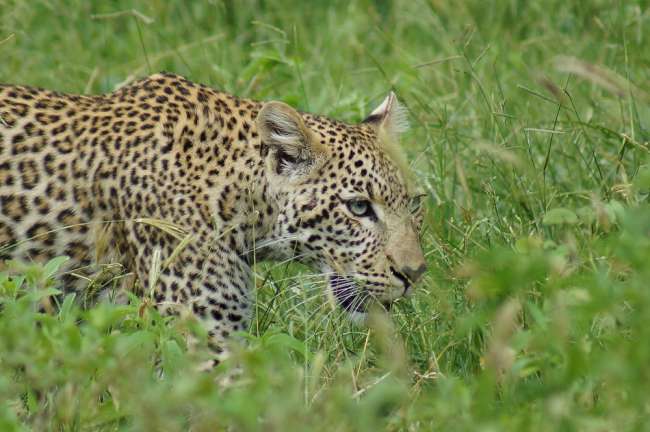
Ripoti za usafiri Botswana
